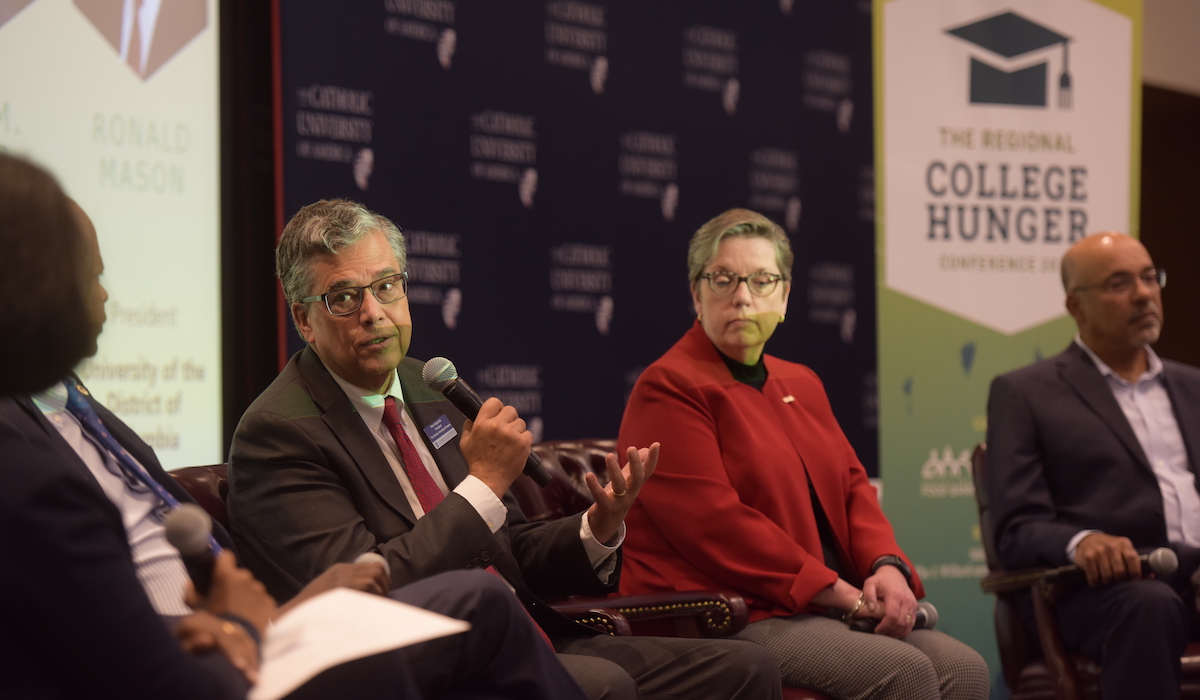

The inaugural Regional Hunger Conference was held at the University on Oct. 6, where President Dr. Peter Kilpatrick joined local higher education leaders to address food insecurity on their campuses.
Recent national studies show about 40 percent of college students have experienced food insecurity, which is defined by the U.S. Department of Agriculture (USDA) “as limited or uncertain access to adequate food.” Hunger negatively impacts student success and with food costs rising nationally, the situation is expected only to worsen.
Dr. Kilpatrick said at the meeting that the first step in overcoming food insecurity is talking about it. “One of the most important learned skills in any community is being vulnerable with each other,” he said. “The more you embrace your own humanity and are vulnerable with the whole community, that enables people to open up and talk about these things.”
Most college students do not qualify for the Supplemental Nutrition Assistance Program (SNAP), so colleges and universities across the country are working to find ways to fill the gap to help ensure no student goes hungry. The Capital Area Food Bank and The Consortium of Universities of the Washington Metropolitan Area partnered to host the conference. Presidents of Howard University, Northern Virginia Community College and the University of the District of Columbia participated in the discussion along with leaders in the office of the president, student affairs, student services and food assistance programs from regional institutions.
In 2021-2022, the University’s food pantry, the Cardinal Cupboard, distributed over 18,000 pounds of food and served around 370 people. The Cardinal Cupboard is operated by Campus Ministry and is open Monday through Thursday, serving students, faculty and staff of the University. The majority of the food and items distributed through the pantry are donated by the community or grant-funded.
Emmjolee Mendoza, director of community engagement, social justice and Catholic social teaching initiatives at Campus Ministry, said the conference showed her there is always room for improvement. “I’m glad and I’m happy that Catholic University is doing something and I think there is more to be done and more to learn from other institutions.”
Mendoza said the University community can help fight food insecurity by becoming aware of the issue, engaging in the community and volunteering or donating at the pantry. “It is important to know your population, your students, your community and each population is unique,” Mendoza said.
Five local college students attended the meeting and shared ways their institutions helped them overcome the challenges of food insecurity. With university food support programs, they said they can focus more on their studies and less on where their next meal will come from.